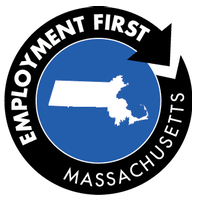Certification Options
Certification refers to an endorsement from a body of experts given to individuals who practice in a given field. The process used can range from an informal peer review board to issuing formal certificates that indicate the completion of a course of study.
Certification is used in some fields as a prerequisite to providing services; that is, you cannot be employed without being certified. For example, an assisted-living facility or healthcare setting might require that their personnel are CNAs (certified nursing assistants).
Some professions use certification as a symbol of a higher level of service provision; certified personnel thus become more highly sought after, and in some instances they are paid higher wages. For instance, a certified public accountant (CPA) is considered to have a higher competency level than an accountant who does not carry this certification.
Two nationally recognized associations in the employment and disability fields are the Association for Persons Supporting Employment First (APSE) and the Association of Community Rehabilitation Educators (ACRE). They have each identified critical competencies for employment professionals supporting individuals with disabilities.
In 2012, APSE piloted a new professional credential based on its competencies: the Certified Employment Support Professional (CESP). This national certification requires passing an exam to demonstrate competence. APSE has established the Employment Support Professional Certification Council to oversee this process.
In addition to passing the exam, there are requirements for ongoing professional development in order to maintain the CESP credential. Visit the APSE website for more information.
ACRE has embraced and expanded upon the APSE competencies. ACRE focuses on curriculum review to determine whether a particular training curriculum meets specified competencies. Individuals who complete training that is approved by ACRE can receive a nationally recognized certificate of achievement.
ACRE is a membership organization, and offers curriculum review to its members. It awards certificates of achievement to individuals who complete a minimum of 40 hours of training (and fieldwork) provided by an ACRE-approved training resource.
ACRE also maintains a certificate registry, which lists the professionals who complete the ACRE-approved training by name, certificate type, state, and year of training. To view all approved ACRE training providers, see http://www.acreducators.org/find-training-providers.
ICI and DDS have partnered to offer you the option to achieve the National ACRE certificate. If you are interested in pursuing this option please download and complete this form. You can also contact Lara Enein at lara.enein@umb.edu with any questions.
